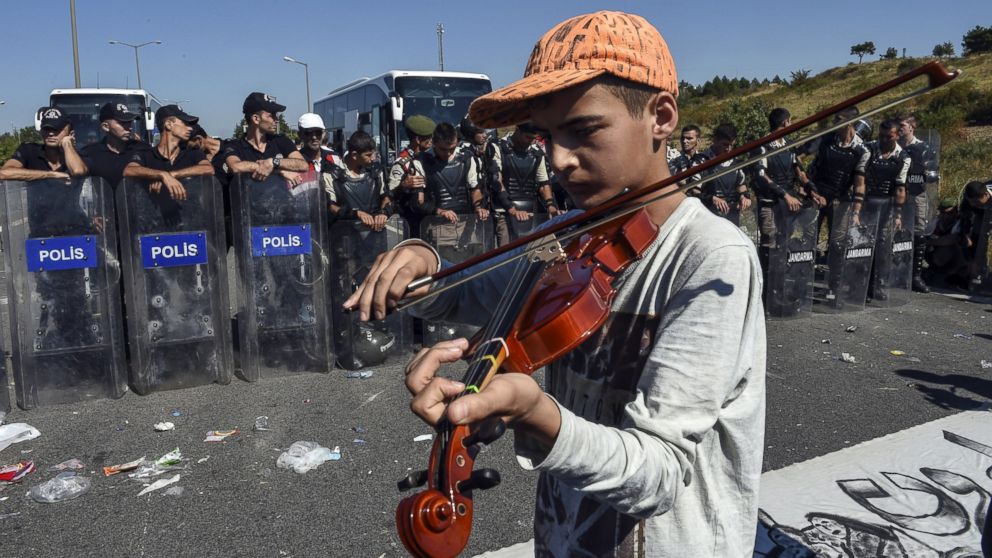Refugee Crisis in Europe: The Things They Couldn't Leave Behind
Many refugees are traveling with just a few vital possessions.

— -- Thousands of refugees continue to pour through European borders daily, by land and sea. They leave behind their homes, jobs and communities, carrying only backpacks and bags to begin a new life.
Italian journalist Valerio Cataldi tweeted a video on Sunday of 13-year-old Alameddin playing a violin near Eridine, Turkey, in front of a barricade of police as he and other refugees walked to the Turkish-Greek border.
The Syrian boy’s music received stares and some smiles from the police facing him in the video, but he gained attention around the world once Cataldi tweeted the moment.
From violins to man’s best friend, there are some treasures people could not fathom leaving behind. The United Nations High Commissioner for Refugees posted a video on Facebook of 17-year-old Aslan from Damascus, Syria. Aslan couldn’t bear the idea of coming to Europe without his adorable puppy, Rose. When asked why he would bring his dog and only a small bag, he told the U.N.’s refugee agency, “I say I love my dog!"
Aslan showed off for booklet for Rose that looks like a passport as the dog plays along and drinks water from a cup in the video. According the UNHCR, thousands of refugees bring their pets with them.
Aeham Ahmad, known widely as the "piano man of Yarmouk," was known for bringing music to the people living in the refugee camp on the outskirts of Damascus, Syria. But when he decided to move his piano to a nearby town, he said an ISIS soldier told him the music was "haram" -- as act forbidden by Allah -- and lit the instrument on fire.
He said that triggered his decision to make the difficult journey through the Mediterranean.
"I want to play in the streets of Berlin like I played in the streets of Yarmuk," he told AFP. "I would love to play in the most famous orchestras, touring around the world and conveying the suffering of those that are besieged in [Yarmuk] and of all the civilians still in Syria."
Another ten thousand refugees arrived in Austria on Monday, carrying only a few important possessions and dreams of following their passions.
Get real-time updates as this story unfolds. To start, just "star" this story in ABC News' phone app. Download ABC News for iPhone here or ABC News for Android here.




